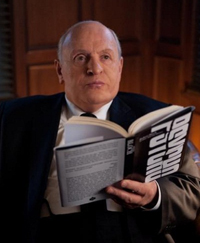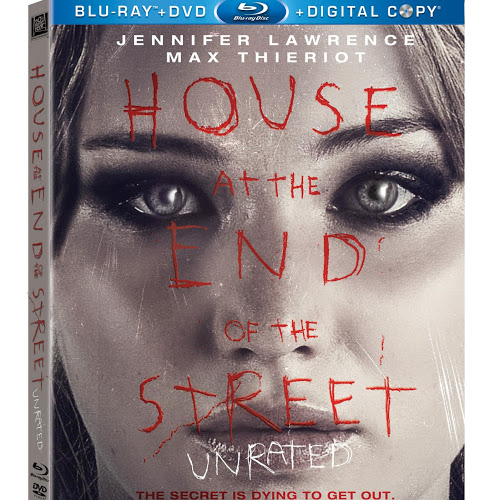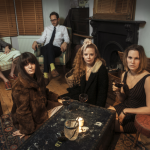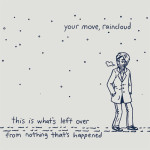Have you ever wondered what the loveable Disturbia (DJ Caruso, 2007) would be like if stripped of all it’s charm and stuffed instead with sloppy cliché, hackneyed torture porn tendencies and sleep-inducing predictability? No? Well there’s no need to imagine as we now have House at the End of the Street (Mark Tobderai, 2012) to serve as the actualization of that potential cinematic mixed kebab of shit. The most unsettling thing about this generic, jawless shuffle through the dodgy neighbour sub-genre is it’s tendency to romanticize the relationship between our lead, the expressionless Hunger Gamer Jennifer Lawrence and the local weirdo in question, played with what I’m sure he imagines is James Dean minimalism by man-child Max Thierot. Glittery vampires and teenage girls sure do have a lot to answer for but when mainstream horror starts trying to sell us doomed romance with SERIAL KILLERS? Come on, that’s in pretty poor taste.
‘Cheering’ me slightly from that pit of despair was Jennifer Chambers Lynch’s Chained (2012). Yes, you’ll be pleased to know it’s considerably better than (but not as funny as) ‘93s Boxing Helena. You’ll also take heart at the fact that this serial-killer-in-training drama is a sober, serious dose of endurance horror that boasts some tough, flinch-worthy scenes, and a superbly sleazy performance from cab driver cum kidnapper Vincent D’Onofrio. Having taken a child he names ‘Rabbit’ into his home and imprisoned him there as a vaguely complicit slave throughout his childhood the time comes as an older teenager for Rabbit to make his moral choice – to join his father figure in murder or go against everything he’s known and revolt. It’s a traumatic and impressive struggle that leads to some tense moments and unexpected flourishes. It’s worth a look, no doubt – just try to switch it off before the ludicrous and obviously tacked on final scene…
The main course in our horror buffet (I’m thinking ladyfingers and…er…monkeybrains?) arrives in the shape of society rich dude turned filmmaker Sacha Gervasi’s Hitchcock (2012), a star-filled account of the great (and perhaps slightly sociopathic) man’s experiences in getting horror groundbreaker Psycho (1959) off the page and on to the silver screen. Battling the censor, studio and his own inadequacies Hitch is essayed as an egotistical, selfish but loveable genius by once-brilliant workhorse Anthony Hopkins in a rare recent performance of note. Framing the film as an analysis of a great director’s relationship, both personal and working, with his wife Alma Reville (a predictably effective Helen Mirren) is intriguing enough and while it’s riddled with inaccuracy, clunking exposition and humour that can be best described as ‘gentle’ there are one or two heartlifting moments that make the whole endeavour worthwhile.
Honourable mention must go to WAICTY favourite Danny Huston for a reaction scene that involves some barely perceptible twitching (now THAT’s acting, folks) and of course anything that shines a little light on to the production of one of the true greats of our genre must be celebrated to an extent, but while there are tiny nibbles of joy here – Ralph Macchio cameo anyone? – it’s a film that struggles with it’s own limitations, constantly feeling like it’s about to burst out and show us the world it’s set in, give itself a broader context, but failing to do so – largely, one suspects, due to budgetary constraints rather than limitations of talent. Like Hitch himself it’s ultimately a naughty, loveable thing.
If, after that, you still need a fix of movie-making schlock then try Joe ‘The Best Director Of Our Lifetime’ Dante‘s Matinee (1993), a fictionalised account of carny slash film producer William Castle’s (here pegged as ‘Laurence Woolsey’ by the wonderful John Goodman) life cajoling hapless punters into fleapit cinemas with gimmicks like electrified theatre seats and levitating skellingtons (you heard). It’s a meta-fest that’s filled with silly scares and a an all-pervading love of trash cinema. Get it watched, you evil creatures.
Next time, a world away from Hollywood, we’ll be looking at the more horrifying aspects of Julian Upton’s outstanding book on UK underground cinema ‘Offbeat’. Sweet dreams, boys and ghouls, sweet dreams.





